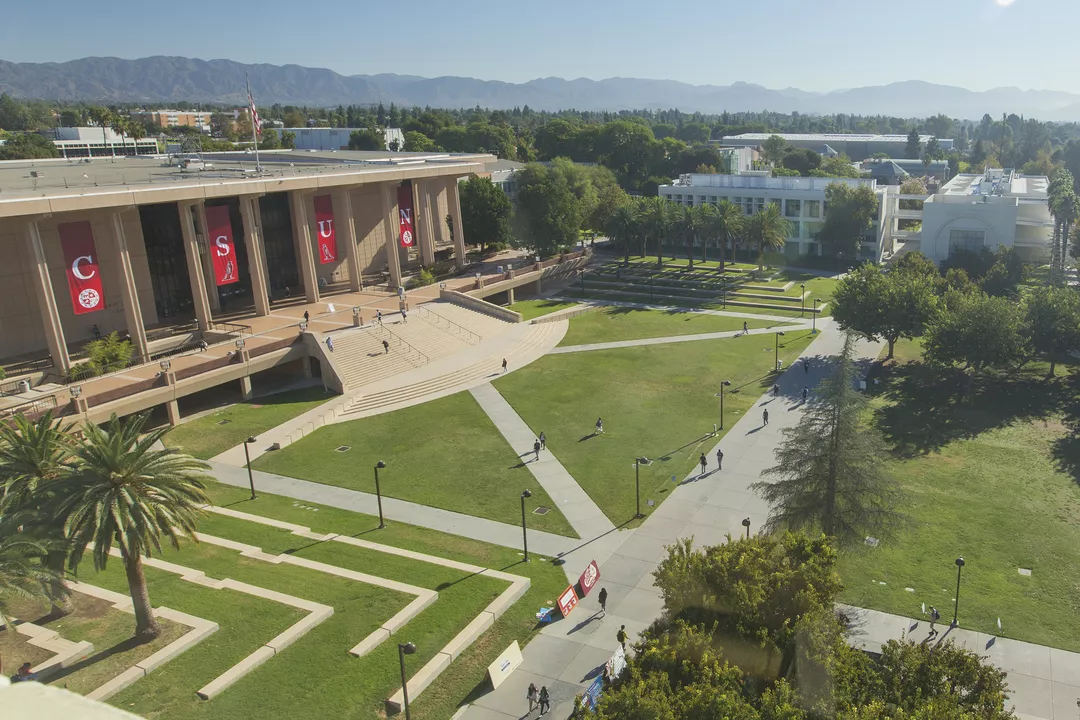-
hello@abroadcube.com
Mail us
-
Call For Help:
98779 83783
-
Whatsapp Us
70090 34921
The Master of Science degree program in Electrical and Electronic Engineering is designed to provide students with advanced study in a variety of Electrical and Electronic Engineering topics, and opportunities to conduct independent research to broaden their professional scope.
The scheduling of courses and the Culminating Experience options in the program are designed to provide flexibility for working professionals. All students complete a one-unit research methodology course, three-unit computational methods course, and at least two of the designated elective area core courses. This requirement is designed to provide a strong academic foundation. In consultation with the Graduate Coordinator and faculty advisors, students then focus their studies in one or more of the following areas, adapting to the needs and interests of the practicing engineer or post-graduate candidate:
Coordinated courses are offered in advanced microprocessors, electromagnetic theory and microwaves, lasers and fiber optics, semiconductor devices, robotics and intelligent machines, systems and control, networks, and communication systems. Other coordinated courses facilitate the study of estimation and stochastic control, advanced communications and signal processing, large interconnected power systems, power systems reliability, and planning, advanced design and organization of digital computer systems, and advanced integrated circuit design. The program is also sufficiently flexible to allow special independent studies of problems of current interest.
The Department has a strong relationship with the local engineering community. Students of the program have access to Department laboratories and facilities and to University computer services.
| Level | Masters |
| Discipline | Engineering |
| Duration | 24 months |
| Intakes | Jan, Sep |
| Application Fees | USD 70 |
| Tuition Fees | USD 14304 |
| Campus | Sacramento |
| Language proficiency (minimum) | |
| IELTS | 6.5 |
|---|---|
| TOEFL | 80 |
| PTE | 65 |
| Duolingo | Not Required / Waiver |
| Exam proficiency (minimum) | |
| SAT | Not Required / Waiver |
|---|---|
| ACT | Not Required / Waiver |
| GRE | Not Required / Waiver |
| GMAT | Not Required / Waiver |
Minimum GPA - 77%
QS Quacquarelli Symonds is the world’s leading provider of services, analytics, and insight to the global higher education sector, whose mission is to enable motivated people anywhere in the world to fulfil their potential through educational achievement, international mobility, and career development.
THE (Times Higher Education) has been providing trusted performance data on universities for students and their families, academics, university leaders, governments and industry, since 2004. We create university rankings to assess university performance on the global stage and to provide a resource for readers to understand the different missions and successes of higher education institutions.
The Academic Ranking of World Universities (ARWU) was first published in June 2003 by the Center for World-Class Universities (CWCU), Graduate School of Education (formerly the Institute of Higher Education) of Shanghai Jiao Tong University, China, and updated on an annual basis
The "Webometrics Ranking of World Universities" is an initiative of the Cybermetrics Lab, a research group belonging to the Consejo Superior de Investigaciones Científicas (CSIC), the largest public research body in Spain. CSIC is among the first basic research organizations in Europe. The CSIC consisted in 2006 of 126 centers and institutes distributed throughout Spain.



